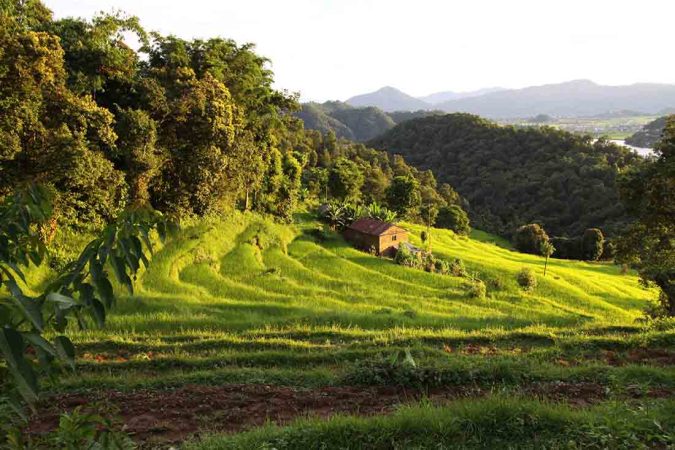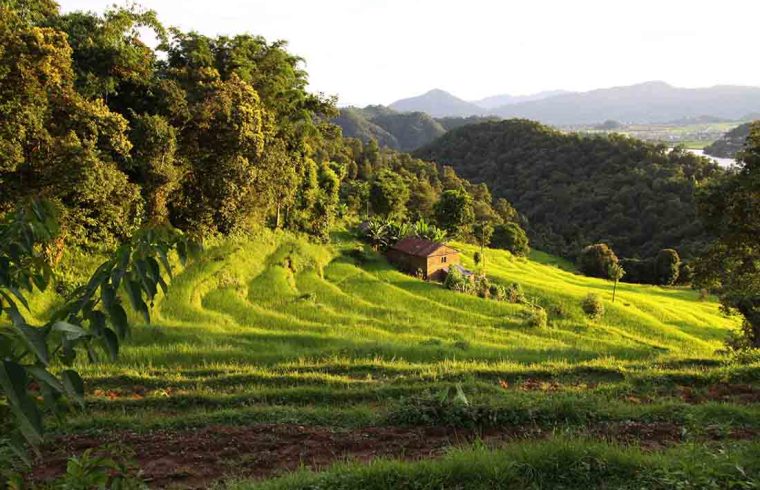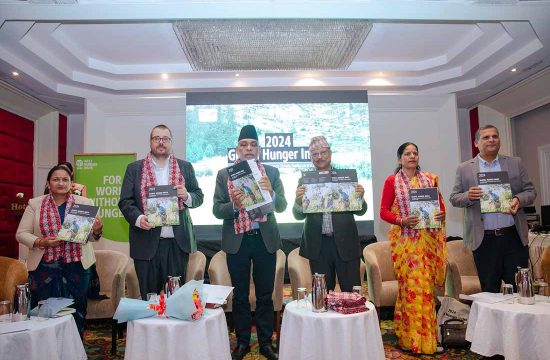
Kathmandu— In a landmark effort to scale up sustainable agriculture in the Himalayan region, a multi-stakeholder consortium, the Himalayan Agroecology Initiative (HAI), has been set up aimed at strengthening the resilience of farmers in India, Bhutan and Nepal against the climate crisis.
This multi-stakeholder initiative, backed by the global think tank World Future Council and IFOAM – Organics International, a global network of organic farmers, processors, retailers, academics, and researchers, will enhance biodiversity, support sustainable agricultural practices, and foster durable value chains.
The HAI partners will develop comprehensive country roadmaps for the three countries through a series of consultations, culminating in a national consultation in the respective capitals later this year. The final roadmaps will be rolled out at an international conference in 2025.
“Establishing agroecology and sustainable food systems has been the core spirit of IFOAM – Organics International,” said Ravi R. Prasad, Executive Director of IFOAM – Organics International. “We are excited to upscale with the World Future Council and our partners in the Himalayas to establish food systems that are resilient to climate change and beneficial to smallholders’ livelihoods.”
The initiative focuses on collaborative planning and stakeholder engagement, underscoring its potential to significantly impact the region’s agricultural landscape. Indeed, the Himalayan Agroecology Initiative aims to create a flagship for the expansion of sustainable food systems.
A Blueprint for Global Sustainability
“To safeguard life on Earth, we urgently need to steer our food systems away from unhealthy and unsustainable practices,” emphasized Alexandra Wandel, Executive Director of the World Future Council. “Our commitment with IFOAM, the International Fund for Agricultural Development (IFAD), and the German Federal Ministry for Economic Cooperation and Development (BMZ) to the Himalayan Agroecology Initiative builds the foundation for a more integrated, participatory, and holistic approach for coordinated action across government and clear policy interventions to co-create food systems that strike a balance between human nutrition enhancement, rural development, and environment conservation.”
The Himalayan Agroecology Initiative is not just a regional effort; it is a blueprint for sustainable agriculture that has the potential to influence global practices. Ulaç Demirag, IFAD Representative and Country Director, India, said, “Sustainable food systems and natural farming are increasingly at the forefront of India’s national development goals. We welcome this collaborative opportunity to strengthen Himalayan food systems, which play a significant role in overall food security in the region.”
By leveraging the strengths of its diverse partners and focusing on empowering national stakeholders, the HAI is poised to make a lasting impact on the landscape for future generations.
Uniting Forces for a Sustainable Future
Since its official launch in May 2024, the Himalayan Agroecology Initiative has mobilized a diverse network of partners, including prominent organizations such as the Alliance of Bioversity International – CIAT, UNDP India, Local Initiatives for Biodiversity, Research and Development (LI-BIRD) in Nepal, and the Tarayana Foundation in Bhutan. These entities bring extensive expertise in agricultural research, sustainable development, and community empowerment, ensuring that the initiative is rooted in both global best practices and local knowledge.
India: In India, the Alliance of Bioversity International – CIAT, in consortium with UNDP India, leads the charge. Their combined experience in biodiversity, environmental management, and nutritional security positions them as pivotal players in driving this initiative until December 2026.
Nepal: LI-BIRD, renowned for its participatory research methodologies and focus on climate adaptation through community resilience building, agrobiodiversity conservation, and sustainable natural resource management, spearheads the initiative on agroecology. Their involvement is set to continue until April 2025, ensuring a strong foundation for agroecological practices and policy.
Bhutan: The Tarayana Foundation, dedicated to grassroots development and improving the lives of marginalized communities, is the key partner. Their efforts until April 2025 will focus on how to better mainstream sustainable agriculture into national policies and community development.
All partners are now busily and closely cooperating with respective governments and key stakeholders in the technical and advisory committees to develop, finalize, and endorse the roadmaps including through participatory consultation processes.








